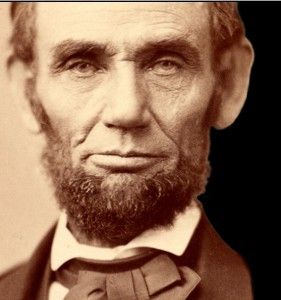 Today is the dedication of the Soldiers’ National Cemetery at Gettysburg, Pennsylvania, four and one-half months following the great, but costly and bloody, Union victory on the battlefield in and around the town.
Today is the dedication of the Soldiers’ National Cemetery at Gettysburg, Pennsylvania, four and one-half months following the great, but costly and bloody, Union victory on the battlefield in and around the town.
The main speaker for the day’s ceremonies is Edward Everett, a politician, Unitarian pastor, educator, diplomat, and orator from Massachusetts. Everett’s last political position was that of U.S. Senator from Massachusetts, from which he left office in 1853. Now, Everett is best known as an eloquent former politician, his oratory skills having led to his selection as today’s keynote speaker.
Stepping to the podium, Everett begins what is intended to be known as the Gettysburg address. Over 13,000 words and two hours later he finally sits down, having delivered a speech that is not unusual in length in this era.
A hymn follows. Then U.S. President Abraham Lincoln steps to the podium, tasked with offering a brief dedication of the cemetery. Lincoln summarizes the war in just a few paragraphs, his speech only taking about two minutes:
Four score and seven years ago our fathers brought forth on this continent, a new nation, conceived in Liberty, and dedicated to the proposition that all men are created equal.
Now we are engaged in a great civil war, testing whether that nation, or any nation so conceived and so dedicated, can long endure. We are met on a great battle-field of that war. We have come to dedicate a portion of that field, as a final resting place for those who here gave their lives that that nation might live. It is altogether fitting and proper that we should do this.
But, in a larger sense, we can not dedicate — we can not consecrate — we can not hallow — this ground. The brave men, living and dead, who struggled here, have consecrated it, far above our poor power to add or detract. The world will little note, nor long remember what we say here, but it can never forget what they did here. It is for us the living, rather, to be dedicated here to the unfinished work which they who fought here have thus far so nobly advanced. It is rather for us to be here dedicated to the great task remaining before us — that from these honored dead we take increased devotion to that cause for which they gave the last full measure of devotion — that we here highly resolve that these dead shall not have died in vain — that this nation, under God, shall have a new birth of freedom — and that government of the people, by the people, for the people, shall not perish from the earth.
Simple. Direct. Somber. Respectful.
Ye also inspiring. Soaring. Convicting. Challenging.
Some scoff at the president’s remarks, but others find them remarkable. The words resonate with a nation wounded, wavering, and in need of a resolve that unites and heals. Within a matter of days it is apparent that Lincoln’s speech is the most important of this day. Everett’s speech, meanwhile, is soon largely forgotten.
Yet Lincoln’s words have become much more, recognized with the passing of time as perhaps the single greatest speech in American history, or at the least, one of the greatest speeches in the history of the nation.
And perhaps–just perhaps–traces of Lincoln’s Calvinist Baptist upbringing lurk within his Gettysburg Address.
Sources: “Edward Everett” (link); “Gettysburg Address,” Library of Congress (link); Garry Wills, Lincoln at Gettysburg: The Words that Remade America, Simon & Schuster, 2006 (link)


